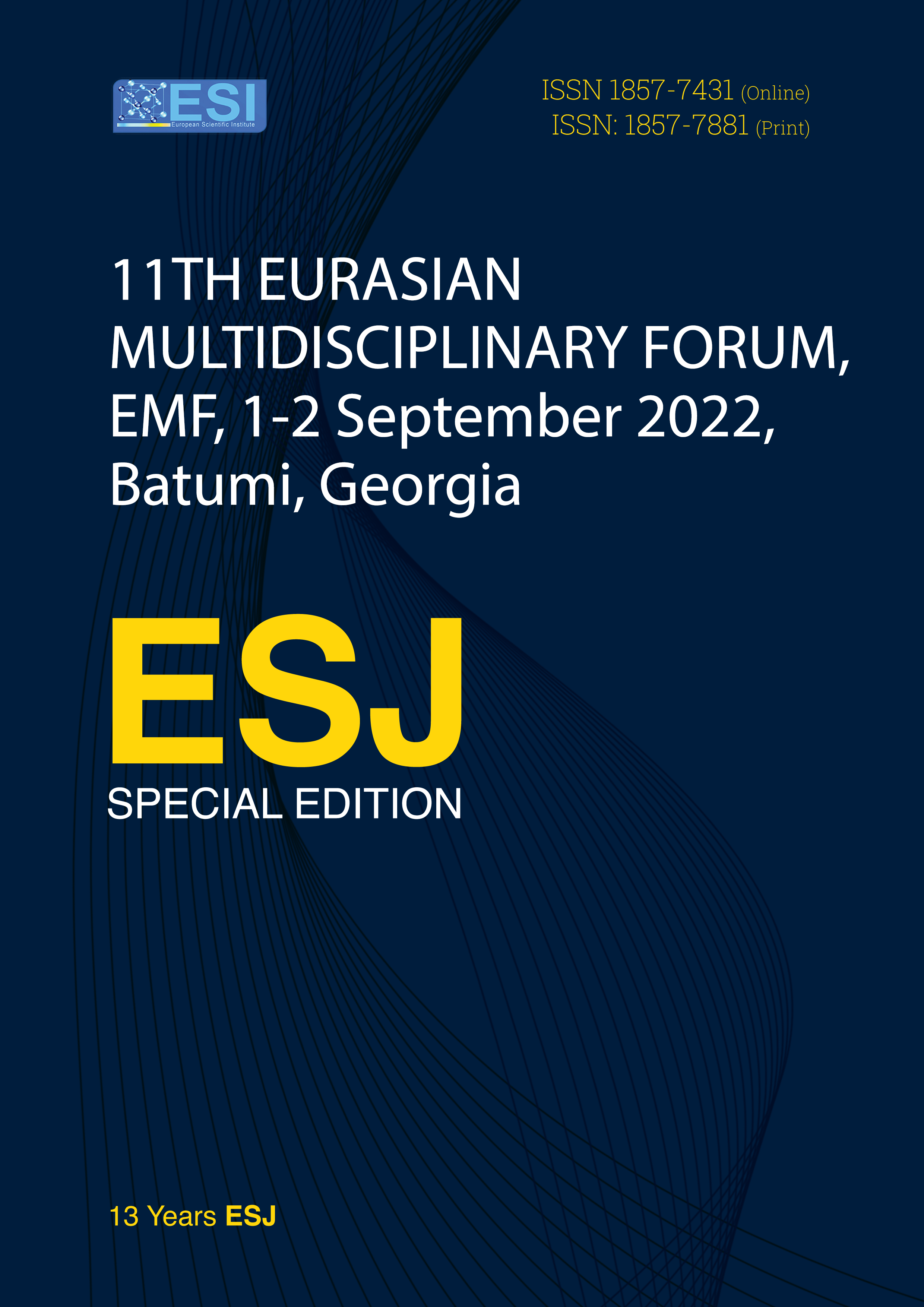Social Media Advertising for Achieving Long-term Marketing Objectives
Abstract
Increasing competition in consumer markets forces businesses to elaborate marketing plans focused on long-term perspectives. This is important in today's fluctuating and unpredictable business environments, where a high level of competitiveness and a positive reputation is the premise of survival for a business. Otherwise, it will be unable to retain its share of consumer markets and make plans focused on long-term periods. In this regard, social media advertising is one of the most powerful strategies to reach various marketing goals: brand awareness and high brand value, positive reputation and word of mouth, growing customer base, high ROAS (return on ad spend) in short-term and CLV (customer lifetime value) in the long run. Therefore, it is necessary to research social media advertising to achieve long-term marketing goals. The paper deals with various issues, including social media advertising opportunities, ways of attracting and retaining customers, raising brand awareness, and elaborating strategies focused on long-term results. The discussion provided in the paper is a result of the literature review and the author's observations. Each part of the paper contains recommendatory remarks for achieving long-term marketing goals by using social media advertising strategies. A brief conclusion summarizes the paper.
Downloads
PlumX Statistics
References
2. Alalwan, A. A., Rana, N. P., Dwivedi, Y. K., Algharabat, R. (2017). Social media in marketing: A review and analysis of the existing literature. Telematics and Informatics, 34, pp. 1177-119;
3. Ashley, C., Tuten, T. (2015). Creative Strategies in Social Media Marketing: An Exploratory Study of Branded Social Content and Consumer Engagement. Psychology and Marketing, Vol. 32(1), pp. 15-27;
4. Batrinca, B., Treleaven, P. C. (2015). Social media analytics: a survey of techniques, tools and platforms. Ai & Society, 30, pp. 89-116;
5. Becker, K., Lee, J. W. (2019). Organizational Usage of Social Media for Corporate Reputation Management. Journal of Asian Finance, Economics and Business, Vol 6, No1, pp. 231-240;
6. Bilgin, Y. (2018). The Effect of Social Media Marketing Activities On Brand Awareness, Brand Image And Brand Loyalty. Business & Management Studies: an International Journal, 6(1), pp. 128-148;
7. Elena, C. A. (2016). Social Media – a Strategy in Developing Customer Relationship Management. Procedia Economics and Finance, 39, pp. 785-790;
8. Ertemel, A. V., Ammoura, A. (2016). The role of social media advertising in consumer buying behavior. International Journal of Commerce and Finance, Vol. 2, Issue 1, pp. 81-89;
9. Felix, R., Rauschnabel, P. A., Hinsch, C. (2017). Elements of strategic social media marketing: A holistic framework. Journal of Business Research, 70, pp. 118-126;
10. Golmohammadi, A., Gauri, D. K., Mirahmad, H. (2022). Social Media Communication and Company Value: The Moderating Role of Industry Competitiveness. Journal of Service Research, pp. 1-16;
11. Gvili, Y., Levy, S. (2017). Consumer engagement with eWOM on social media: the role of social capital. Online Information Review;
12. Kościelniak, H. (2018). Key Performance Indicators Of Social Media In Enterprise Management. Polish Journal Of Management Studies, Vol.18, No. 2, pp. 176-184;
13. Kotler, P. (2017). Marketing 4.0 - Moving From Traditional to Digital. John Wiley & Sons, Inc., Hoboken, New Jersey;
14. Kumar, V., Nanda, P. (2019). Social Media to Social Media Analytics: Ethical Challenges. International Journal of Technoethics, Volume 10, Issue 2, pp. 57-70;
15. Kumar, V. (2018). A Theory of Customer Valuation: Concepts, Metrics, Strategy, and Implementation. Journal of Marketing, Vol. 82, 1-19;
16. Latiff, Z. A., Safieeb, N. A. S. (2015). New Business Set Up for Branding Strategies on Social Media - Instagram. Procedia Computer Science, 72, pp. 13-23;
17. Li, H. (2019). Special Section Introduction: Artificial Intelligence and Advertising. Journal of Advertising, 48:4, pp. 333-337;
18. Madleňák, A. (2021). Geolocation Services and Marketing Communication from a Global Point of View. SHS Web of Conferences 92, 02040 (2021), Globalization and its Socio-Economic Consequences 2020;
19. Manaman, H. S., Jamali, S., AleAhmad, A. (2016). Online reputation measurement of companies based on user-generated content in online social networks. Computers in Human Behavior, 54, pp. 94-100;
20. Misirlis, N., Vlachopoulou, M. (2018). Social media metrics and analytics in marketing – S3M: A mapping literature review. International Journal of Information Management, 38, pp. 270-276;
21. Peng, J., Agarwal, A., Hosanagar, K., Iyengar, R. (2018). Network Overlap and Content Sharing on Social Media Platforms. Journal of Marketing Research, Vol. LV, pp. 571-585;
22. Sama, R. (2019). Impact of Media Advertisements on Consumer Behaviour. Journal of Creative Communications, 14(1), pp. 54–68;
23. Tafesse, W., Wien, A. (2018). Implementing social media marketing strategically: an empirical assessment. Journal of Marketing Management;
24. Tafesse, W., Wien, A. (2017). A framework for categorizing social media posts. Cogent Business & Management, 4:1, pp. 1-22;
25. Vinerean, S., Cetina, I., Dumitrescu, L., Tichindelean, M. (2013). The Effects of Social Media Marketing on Online Consumer Behavior. International Journal of Business and Management; Vol. 8, No. 14, pp. 66-79;
26. Zamani, E. D., Giaglis, G. M., Kasimati, A. E. (2015). Public Relations Crisis and Social Media: An Investigation into Extant and Prospective Consumers’ Perceptions through the Lens of Attribution Theory. Journal of Theoretical and Applied Electronic Commerce Research, Vol. 10, Issue 2, pp. 33-52.
Copyright (c) 2023 Irakli Abashidze

This work is licensed under a Creative Commons Attribution-NonCommercial-NoDerivatives 4.0 International License.








